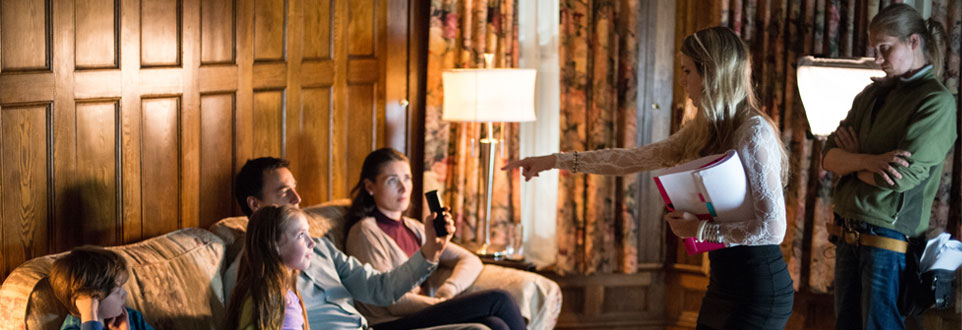
Film touring across province as part of HIFF festival
Short film series stops in Lunenburg (taken from Lighthouse Now)
by Evan Bower
It isn’t always easy to keep the “Atlantic” in the Atlantic Filmmakers Cooperative. Festival coordinator Nelson MacDonald says Nova Scotian filmmakers often shoot their work in rural locales around the province, but it’s not often those films make it outside Halifax for a screening.
The group is trying to change that with a series called “New Short Films from Atlantic Canada” that is making its way through rural Nova Scotia this winter. The series will come to Lunenburg for a free screening of six short films at the Lunenburg School for the Arts at 7 p.m. on February 12.
“I get such a kick out of going into small communities and showing films, especially because we often show them outside of theatres, like in the Lunenburg School of the Arts,” said MacDonald. “These are spaces that are just a bit different. It’s a different experience for folks.”
The lineup includes “Alia,” a five minute drama by NSCAD student Raghed Charabaty and “Cabinet of Wonders,” an animated film by Jim MacSwain. “Some Things Won’t Sleep” is a horror-tinged drama by 30-year-old writer and director Leah Johnston that was partly filmed in Lunenburg County.
“It’s a night scene in the woods, so we shot part of the day at Lake Mushamush and then moved into the woods,” said Johnston. “I really had a particular look in mind for that part of the film …and out towards that area, Chester and beyond, is really the only part of Nova Scotia I could find where the trees grew very symmetrically.”
The film tells the story of a husband and wife whose seemingly perfect marriage is revealed, through gruesome flashes from the future, to be not quite what it seems.
Johnston had been living in the U.S for a decade. She studied drama at New York University before moving to Los Angeles.
It was there that she won the Drama Prize from Canada’s National Screen Institute to fund the film. Part of the grant required that she make the film in her home province, so she packed her apartment in storage and returned to her hometown of Truro for what she expected to be around six months.
“I was really blown away when I got home by the film community in Nova Scotia, and that’s a big part of why I stayed,” said Johnston. “This was really my first professional short film, so it just meant a lot to be screening for good-sized houses in Atlantic Canada.”
Another benefit of staying in the country was the access to federal grants, which Johnston says weren’t an option so close to Hollywood.
Now that she’s looking to move into feature films, and the higher cost to make them, getting the funding she needs will be a bigger challenge. Last year’s cuts to the provincial film tax credit make that a tough goal to pursue in Nova Scotia.
“To date, I’ve had limited interactions with the provincial government funding, but going forward I would need to interact with them more, ” said Johnston. “Basically the cuts really affect my ability to grow beyond the point I’m currently at with filmmaking.”
The Atlantic Filmmakers Cooperative first came to Lunenburg last year to celebrate its 40th anniversary with a screening of short films. MacDonald says the group was surprised by the size of the audience it attracted, and it encouraged them to try it again with a new slate of films.
Lunenburg is the third stop of the series. Screenings were held in Sydney and Antigonish in November, and another is planned for Shelburne.
“People come out and want to talk and learn … and have lots of questions about making films in Nova Scotia,” said MacDonald. “It’s great to be able to bring these films back to the places where they’re from one way or another.”